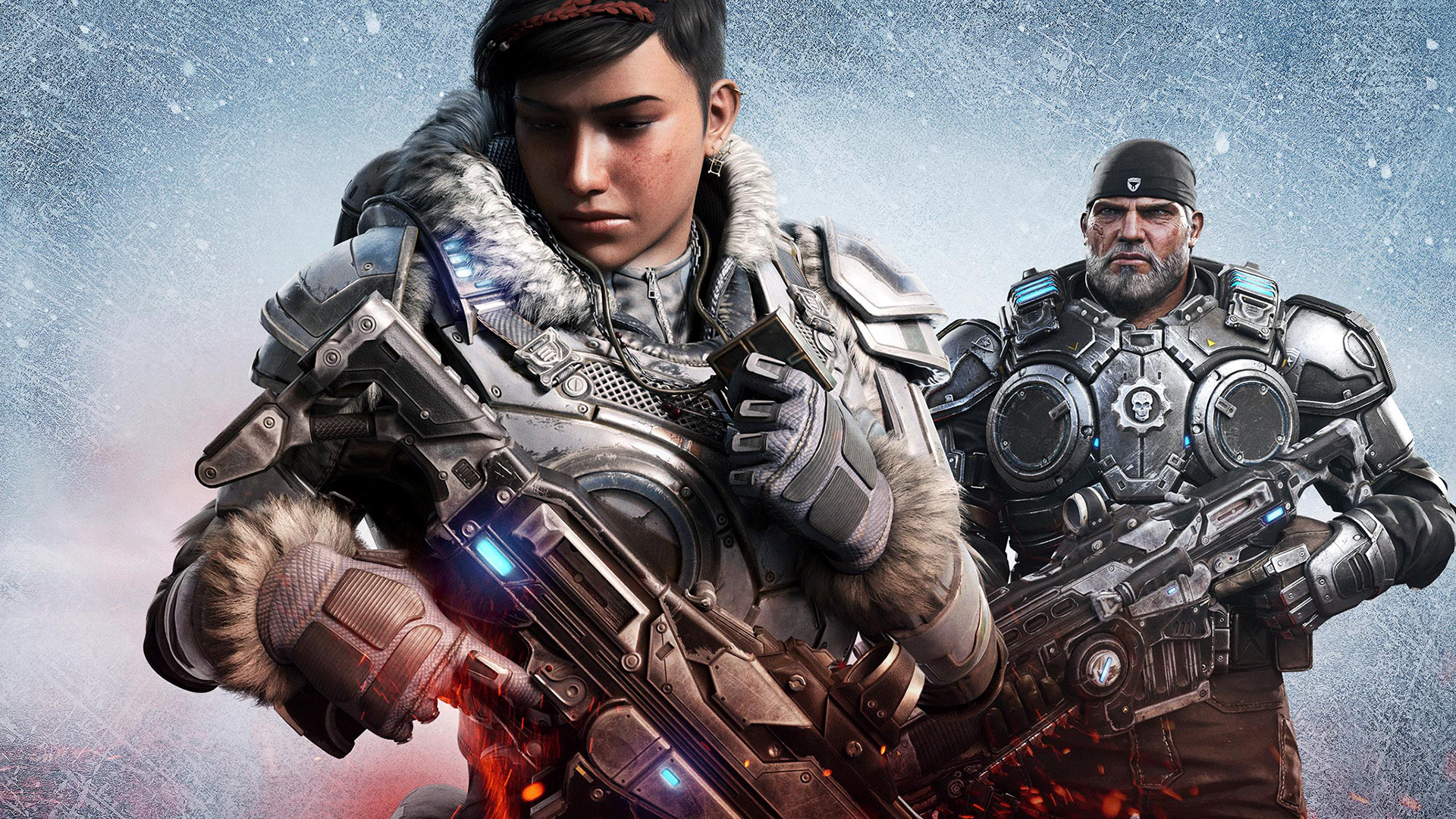The Coalition’s Ryan Horn on Moving from the Military into Game Design
A senior game designer at The Coalition shares his insights as part of our USO Career Kickstarts with Xbox series.

Game designer Ryan Horn, senior designer at The Coalition, recently participated in a virtual career session, “Explore Production Careers in the Game Industry” as part of the “USO Career Kickstarts with Xbox” series. The next installment, “Explore Engineering Careers in the Game Industry,” is Tuesday, September 26.
Microsoft Game Dev: What is Game Design and what exactly does a Game Designer do, in your experience? How does Game Design intersect with Game Production as a whole?
Ryan Horn: As a discipline, Game Design operates as the game's blueprint, outlining its rules, structures, and core identity on which the entirety of a game is built. As Game Designers, we craft the player's journey, encompassing every action, challenge, and the emotional arc they undergo. Our role is not only about crafting the game's vision but also driving the creation and integration of various disciplines to bring this vision to life, ensuring a remarkable player experience.
A Game Designer's tasks can be vast and varied. Some days, we delve deep into in-engine implementation, scripting, and meticulous tuning, bringing together the art and the code. On other days, we focus on writing detailed documentation or collaborating with stakeholders to articulate a specific design vision. In my own journey, I've shifted between these roles, with my tasks being molded by the phase of the feature and project.
Regardless of the specific design role, it's important to understand that Design doesn’t operate in isolation. We draw the blueprint, but bringing that vision to life requires a constant collaboration with other departments to realize the vision. In my experience, Production is the integral link between all departments that ensures the Design vision is in scope and can be realized through collaborative execution.
Microsoft Game Dev: How did you get started, and what have you done along the way to continue to grow in your various game industry roles?
Ryan Horn: Ever since I was a kid, video games have captivated my imagination and have clearly been what I wanted to do with my life. But before I jumped straight into the world of game design, I felt the need for a real challenge. The Marines provided exactly that. Right after high school, I joined as a Light Armored Vehicle crewman, experiencing intense training and combat operations in Iraq. It was more than just a stint in the military; the Marines shaped my mindset, instilling in me a strong drive for excellence and a constant urge to push myself.
After leaving the Marines I took some time to settle back into civilian life, finding my footing while working at Best Buy. The call of the gaming world didn’t wait long though, and I quickly joined the Art Institute of California – San Diego, focusing on Game Art and Design. Even though the program was largely for environment art, it was the design elements that really clicked for me. The intersection of art, code, and player psychology felt like the perfect blend, offering endless challenges and interest.

After graduation, I was lucky to land a role as a Level Designer at The Behemoth. That initial break set the stage for a journey through various facets of game design. Over the years, I've crafted intricate game spaces as a Level Designer, woven tales and challenges as a Content Designer, and crafted the player's interactive capabilities as a Gameplay Designer. But no matter the role, there's been one consistent goal: delivering an exceptional player experience.
As I've progressed in the industry, I've truly recognized the collaborative nature of game development. To elevate my contributions and impact on my teams, I've honed my communication skills, taken on leadership roles, and engaged with peers from other disciplines to gain insights into their specialized realms.
Beyond collaboration, Game Design demands a mix of technical acumen and creativity. On the technical front, I've expanded my capabilities by learning scripting and enhancing my expertise with game engines. On the creative side, I've sought to improve my storytelling, writing, and character development skills to craft compelling narratives.
Reflecting on my journey, the significance of my time in the Marines becomes obvious. The values of motivation, teamwork, and the relentless pursuit of excellence instilled in me have been the bedrock of my journey in game design.
Microsoft Game Dev: What advice would you offer for anyone taking a new direction mid-career and looking at Game Design? What are the most important things to consider and what skills/tools should one be prepared to demonstrate?
Ryan Horn: When considering a shift to Game Design, it's important to understand that this discipline is as diverse as it is dynamic, and design roles vary greatly from one studio or project to another. While that can sound daunting, it also means that there’s endless possibilities to start and grow a career as a Game Designer, regardless of your background.
While my journey took me through formal education, there isn't a singular path into Game Design. Many make the transition from roles like QA or shift from unrelated fields, driven purely by passion and aptitude. Focus on your strengths and passion, and there’s likely a place for you in Game Design.
My advice to anyone looking into Game Design as a new career is to start with some introspection. When you play a game, what captivates you? Is it the thrill of optimizing your power? The emotional resonance of a storyline? Or perhaps the tactile feedback of a perfectly designed weapon? Identifying your passions can guide you towards your ideal role within Game Design.
At the heart of it all, every Game Designer must genuinely love games. It's not about the platform or genre; it's about understanding and resonating with the player experience. While specific skills might vary based on your role – some technical, others creative – a starting point is to familiarize yourself with the basics of game development. Dive into game engines, experiment, read extensively, and immerse yourself in tutorials. A Designer should articulate the player experience, communicate their intentions, and have a foundational grasp of how to manifest their vision.
For those transitioning from the Military or with a Military background, you bring a treasure trove of life experiences to the table. The intense emotions, challenging situations, and unique perspectives can enrich the narratives and experiences you craft. Beyond this, the military ingrains invaluable soft skills: teamwork, discipline, drive, and leadership, to name a few. All these traits align with the demands of Game Design, ensuring you're well-equipped for a collaborative and technically creative role.
Microsoft Game Dev: Where is the game industry going and how does this evolution impact Game Design and game development in general?
Ryan Horn: The game industry is not progressing in a single direction but is instead simultaneously expanding across various trends and possibilities. Whether it's the immersive realms of VR/AR, the exhilarating experiences of massive group gaming, intricately woven narrative adventures, nostalgic throwback classics, or the very pinnacle of blockbusters, the avenues are manifold. Yet, at their core, they share a common thread: an intensified and refined player experience tailored for each context.
The game industry is in a constant dance of rediscovering past trends while venturing into uncharted territories. Game Design sits at the nexus of this dynamic, propelling technologies and methodologies forward, always with the player's experience at its heart. As the industry matures, the dichotomy of game development becomes more pronounced. On one hand, entry barriers have dropped, democratizing game creation; on the other, the sophistication and intricacy of high-end game development have reached unprecedented heights.
In this ever-evolving landscape, the demand for Game Designers remains consistent. While there's a burgeoning demand for specialists adept in niche areas, the industry equally values versatile designers who bring the ability to balance multiple design facets. This versatility is particularly crucial in smaller projects that may not have the luxury of specialization. However, it also sets the groundwork for more specialized growth in the future.
Drawing inspiration from military values, the game industry greatly benefits from the rigor and discipline that a military experience imparts. The core tenets of problem-solving, adaptability, discipline, teamwork, leadership, and an unwavering work ethic find a natural home in the gaming industry. Such skills, forged in the crucible of military challenges, can be invaluable assets in navigating and shaping the ever-evolving tapestry of the game industry.

